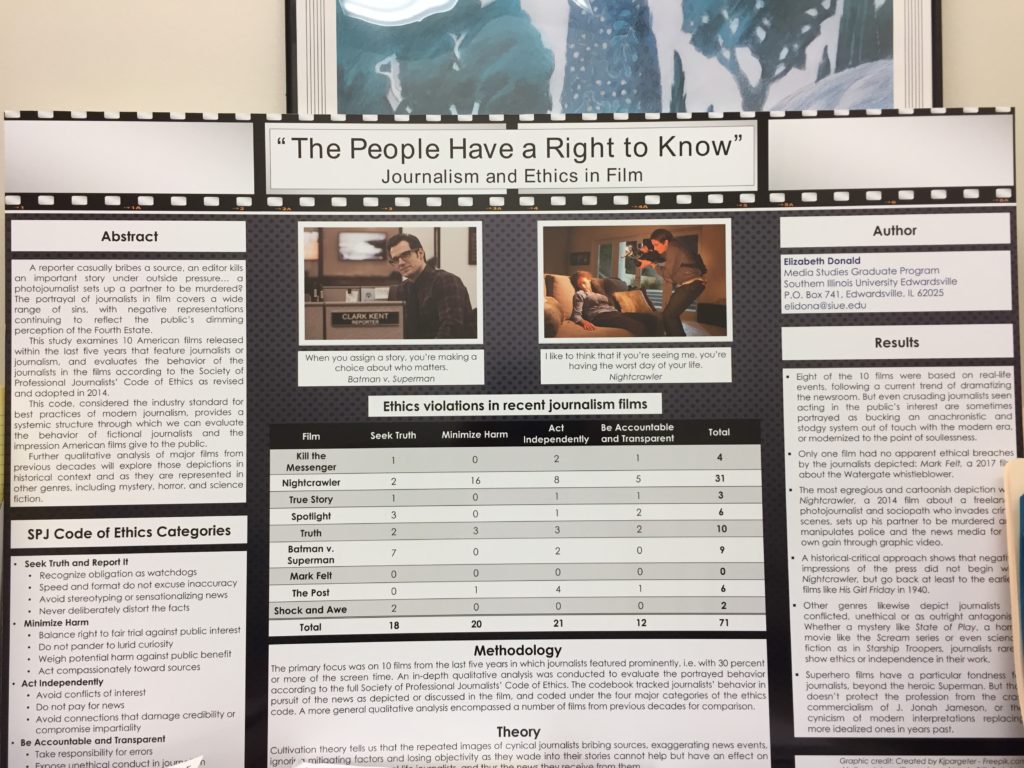I’m happy and terrified to announce that last semester’s research project has been selected for presentation at the Association for Education in Journalism and Mass Communication’s midwinter conference.
That’s a lot of edu-speak to say that I wrote some stuff people liked, and now I’m flying to Oklahoma City to talk about it.
Last semester’s primary project was a research paper titled “The People Have a Right to Know: Journalism and Ethics in Film.” In part it was a test run for my thesis, which will expand greatly from the initial sample to examine several tropes that affect journalists’ representation in the movies. It focused primarily on ten films featuring journalists from the last five years, but also extended into several films from previous eras that highlight some of the most common depictions of journalists.

I analyzed the films through the lens of the SPJ Code of Ethics. If you know me at all, you know that I am passionate about the Code. We denizens of the SPJ Ethics Committee spend a great deal of time year-round advocating ethical behavior, promoting awareness and use of the Code and assisting journalists with ethical dilemmas. My primary soapbox for all these years has been that journalism ethics is not some dry academic theoretical discussion, but a living necessity that should be part of every newsroom’s daily discussion and the only part of your J-school education guaranteed to be relevant throughout your entire career.
Many papers and research projects have focused on the representation of the news media in film, but I am not aware of any others that have used the SPJ Code of Ethics to analyze the fictional journalists’ behavior. Apparently this caught the eye of the committee at AEJMC, and I have been invited to present my research to them.
Thus the terror. I have only presented once before at an academic conference: in 2016, I spoke at the Walter Cronkite Conference on Media Ethics and Integrity about the 2014 project to rewrite the Code for the 21st century. All my other speaking engagements have been much less formal: trade conferences, universities, pop-culture conventions, book groups.
However, since my ultimate goal is to continue teaching, this is an enormous opportunity, and quite an honor.
Oklahoma, here I come…

